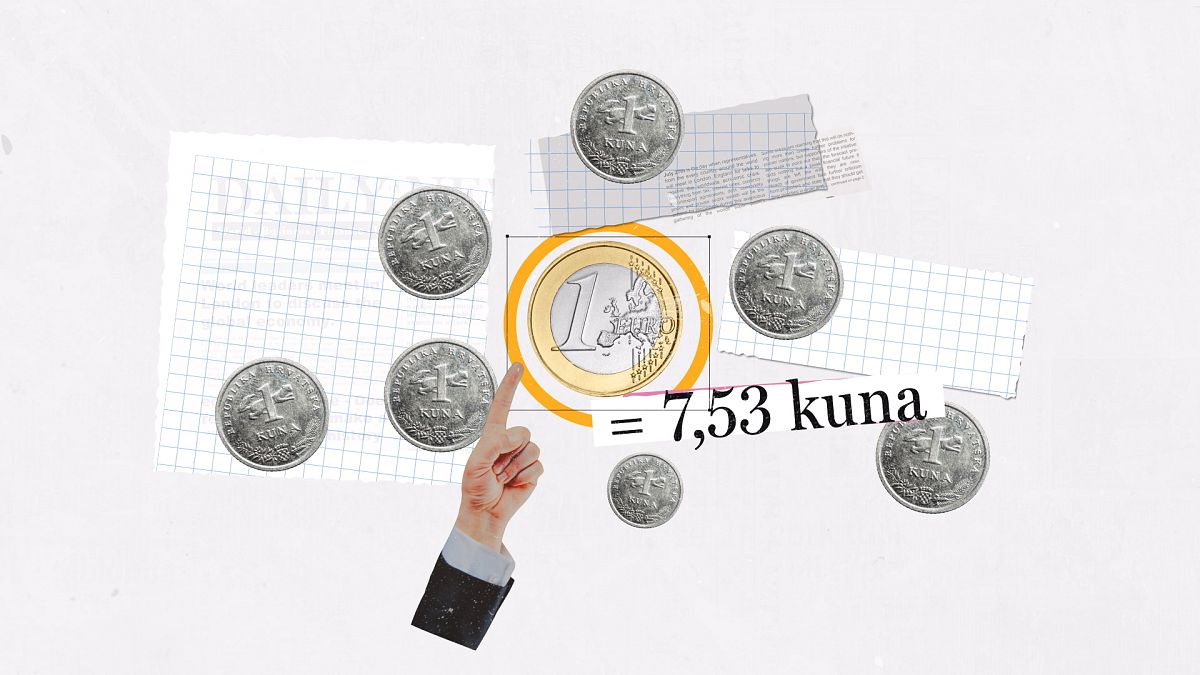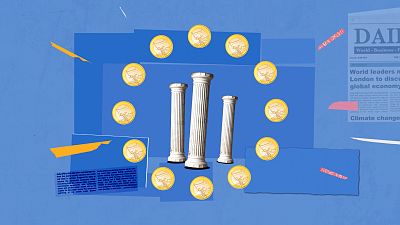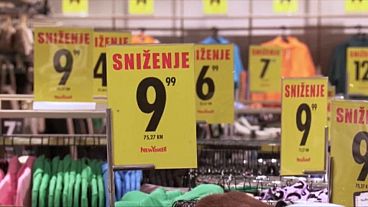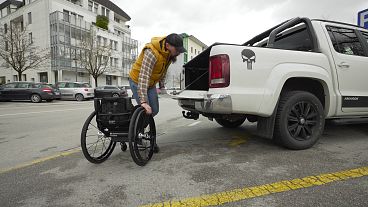The Croatian government has adopted a range of measures to help consumers get used to the euro, which was introduced as the national currency on January 1 2023
Debt, inflation, wages, and jobs ... We know that it's tricky to understand how the economy works. That's why every episode of Real Economy brings you a one-minute Crash Course to bring you quickly up to speed on the big picture. We explain the headline concepts and lay out how public policy is reacting to changing current affairs and economic trends. Watch your one-minute Crash Course in the video above.
On January 1st 2023, Croatia adopted the euro as its currency.
Opinion polls suggest that the majority of the four million-strong population is in favour of the switch. But many older people in particular are sorry to see their old currency go, while four out of five Croatians fear the change may lead to a rise in prices.
So the Croatian government has adopted a number of measures intended to ensure a smooth transition.
What does the change involve?
- Every product and service in Croatia is now bought and sold in euros
- The conversion rate from the old kuna to the new euro is fixed
- 1 euro equals 7.53 kuna
How has the switch been made free for consumers and businesses?
- Kuna coins and notes can be changed without commission in Croatian banks
How will consumers be able to check whether prices have risen?
- Businesses have to display prices in both currencies until the end of 2023
- A state inspectorate has been put in place with hundreds of inspectors touring the country checking for anomalies
- Inspectors have the power to issue fines if prices are not displayed in both euros and kuna
Will there be any systematic checking on price hikes?
- Watchdogs such as the Croatian Association for Consumer Protection will be checking out for signs of price manipulation
What evidence is there of difficulties so far?
- Consumers and watchdogs have complained of rounding up of prices
- The president of the Croatian Chamber of Agriculture, Mladen Jakopović, has said large foreign-owned retail stores are mainly to blame for introducing abusive price hikes, while smaller local stores are respecting the official exchange rate
- Many traders are claiming that price rises are due to increased costs, not the introduction of the euro
- Operators of coin-operated services such as car parks say they have rounded up costs because the machines do not accept the smallest value euro cent coins
- Customers with poor eyesight and particularly the elderly are reporting that they have difficulty handling the money because they don't recognise the coins
On a more sentimental note, the pine marten, which used to feature on the old kuna coins, will appear on the reverse side of the new one euro coin.
In the longer term, the government will be hoping that economic benefits will ensure acceptance from the population. These include an anticipated boost to the tourism and manufacturing industries.



